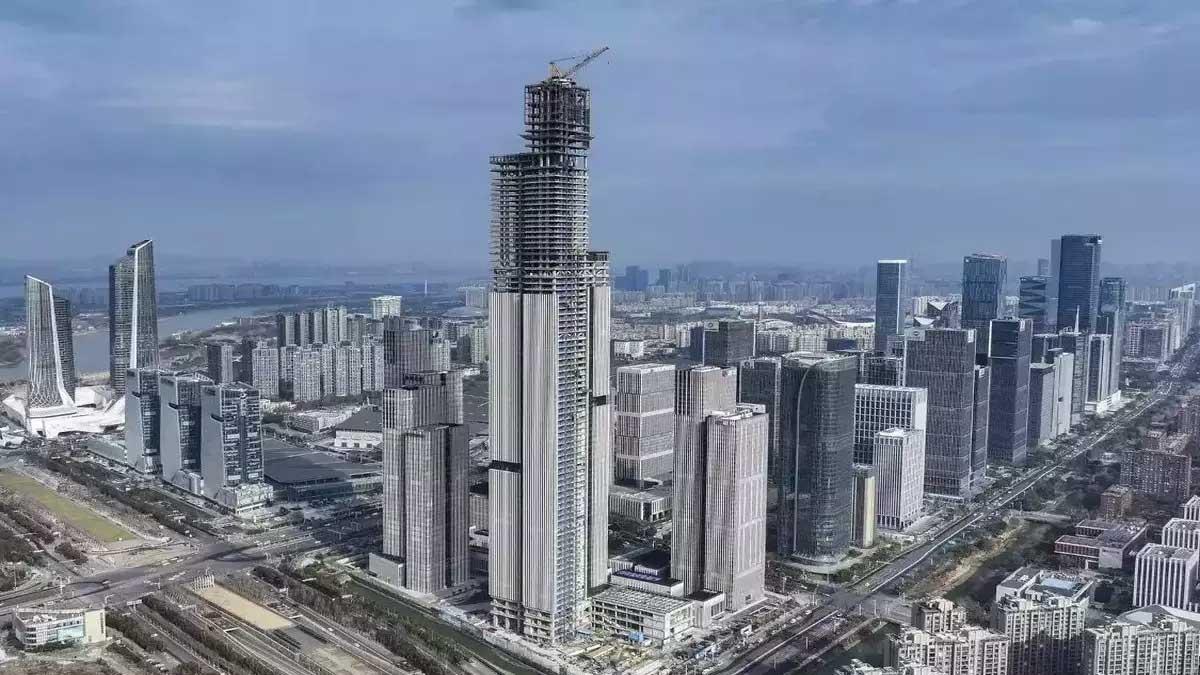After much dilly-dallying, China has finally moved in earnest to stem the implosion of its massive real estate sector. Billions of dollars will be poured into efforts to revive the bankrupt property market, once the mainstay of its economic boom. The People's Bank of China has unveiled a 300-billion-yuan (approximately USD 42.25 billion) relending initiative earmarked for government-subsidized housing projects.
Tao Ling, deputy governor of the People's Bank of China, disclosed to the media last week that local state-owned enterprises are urged to utilize these funds to purchase reasonably-priced completed commercial properties. These properties will then be repurposed to provide affordable housing solutions.
In tandem with this financial injection, commercial banks nationwide have disbursed a total of 963.6 billion yuan (around USD 137 billion) in real estate development loans, along with substantial individual housing loans in the first quarter, according to the state-run Xinhua news agency.
The fund will be used to help developers' access to financing and encourage the repurchase of "idle" land. It will also allow local state-owned enterprises to "relend" to purchase unsold properties, which can then be offered as affordable housing, Chinese media reported.
China's property sector is too big, accounting for nearly a quarter of the country's annual economic output, and has many links to other sectors.
This is where the country's wealth distribution has heavily favored the owners of the properties. Just like the rescue of systemically important financial institutions preventing a financial crisis 16 years ago, major property developers in China might be considered "too big to fail," Hong Kong-based South China Morning Post reported.
China's property crisis, which is regarded as the worst turmoil to hit its vast economy, began with the default of Evergrande Group, the largest property market developer in 2021. Liabilities of Evergrande surpassed USD 300 billion, leading to its court-ordered liquidation early this year, sending shockwaves across China and the world.
After that, the crisis spread like wildfire, and other real estate giants, such as Kaisa Group, Country Garden, and Fantasia Holdings, declared bankruptcy in the face of surplus unsold and partially developed residential towers across the country.
Analysts said the liquidation of Evergrande by a Hong Kong court in January probably doesn't mark the end of China's property debt crisis.
Realizing the property crisis was greatly dragging the world's second-largest economy and slowing down GDP to about five percent, China recently implemented measures to contain the crisis.
Apart from the USD 42.25 billion fund, the government announced several other measures to revive the property market, including the reduction of minimum down payment ratios and the establishment of a relending facility for affordable housing, among commitments to complete unfinished homes.
For instance, minimum down payment ratios for individuals purchasing commercial properties will be reduced to 15 percent for first-home buyers and 25 percent for second-home buyers.
"This is the lowest down payment requirement in history, which will be very helpful in boosting the property market,"
commented Yan Yuejin, research director at E-house China R&D Institute, to Xinhua.
Read also | Boeing Starliner's manned mission delayed again, likely to fly on May 25, says NASA


















